Linden Lane Permaculture is a tiny oasis of native abundance in the suburbs of Camden, Maine. Owner David Kibbe took the time to tell me his story and share his passion for educating and moving people toward a more harmonious relationship with nature and a sustainable future for food.
When David bought his 0.74-acre lot in 2018, it had been used as a commercial development lot to station dirt, gravel, and heavy equipment. His initial goal was modest: he wanted to try to restore this distressed bit of land and create a native plant habitat.
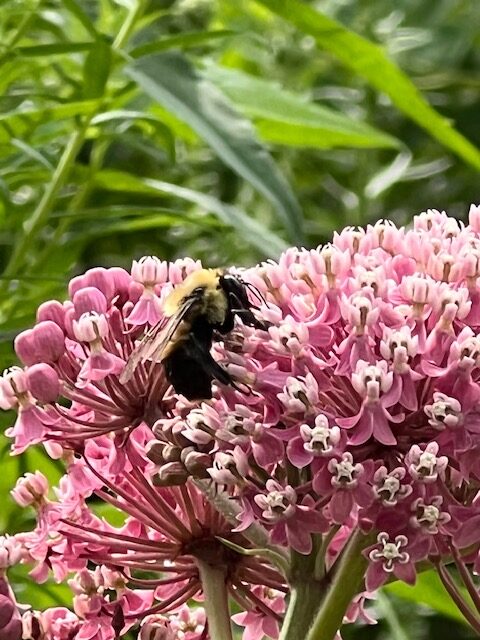
As he started this project, he joined the Main Farmland Trust and Main Organic Farmers and Gardeners Association. He found other farmers were practicing intensive farming on three to five acres and began wondering if he could do the same on just ¾ of an acre. Before long, Linden Lane Permaculture was born.
David’s vision has grown along with the life on his property which now includes a pond (which attracts creatures from ducks to bees), bioswales creating habitat for corn, potatoes, and other annual fruits and vegetables, meadows replete with native flowers, a greenhouse, a basement with grow lights for starting seeds, composting areas, raised beds, and an orchard. This season has been particularly productive, and he harvested 100 pounds of potatoes, 50 pounds of onions, over 300 peaches and dozens of other crops on his suburban farm.
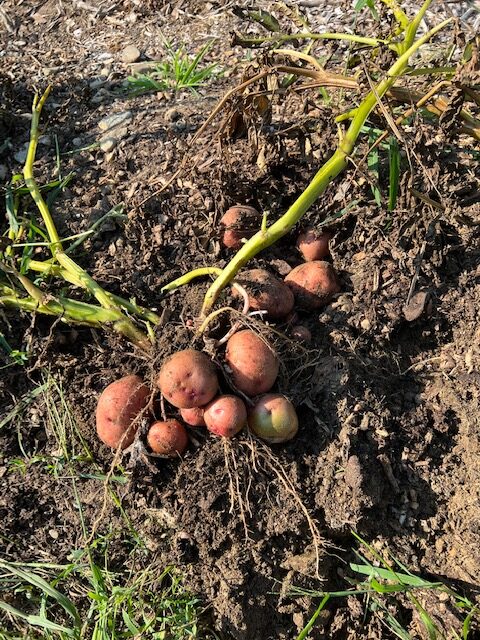
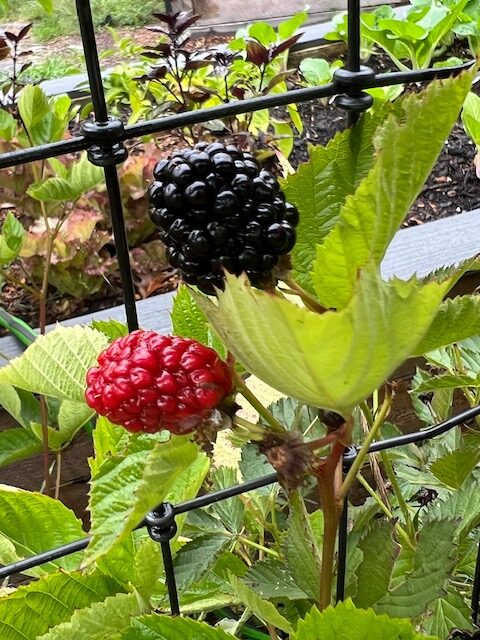
David loves encouraging people to grow native plants and put their lawns to better use. When asked how suburbanites can move toward less lawn and more native plants and gardens, he said to start by observing your property. Look at what areas get sun, how much water you get, what’s growing there already. If it is lawn, simply let it grow! Start small and think about what your goals are with your land. Test the soil if you want to produce a garden and find out how to amend the soil.
When considering his ultimate motivation for doing this, David said that he is thinking several generations ahead. “In my view, in three or four generations almost everyone will have a small farm on their property instead of a lawn.” As unsustainable, large scale farming practices continue to deplete the soil and high-quality food becomes more expensive, we will turn to our own backyards for the solution. As David has shown, you don’t need much space to make a huge difference.
Interested in learning more? David hosts guests through Farm Stay USA and Air BnB and would love to show you around!
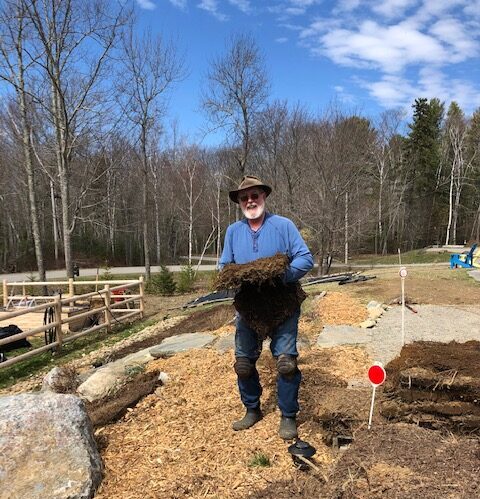
David Kibbe
“Farming starts
with the health of the soil.”

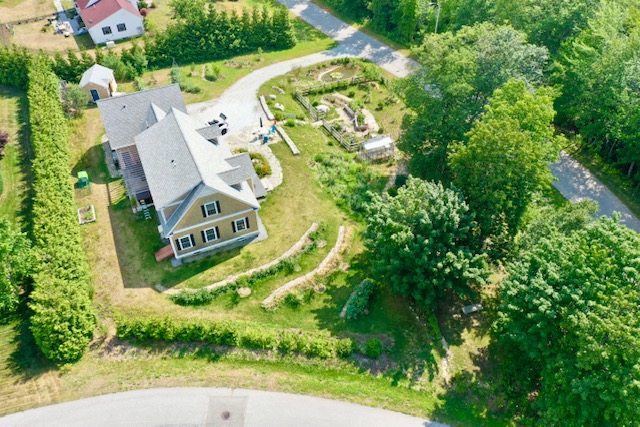
0 Comments